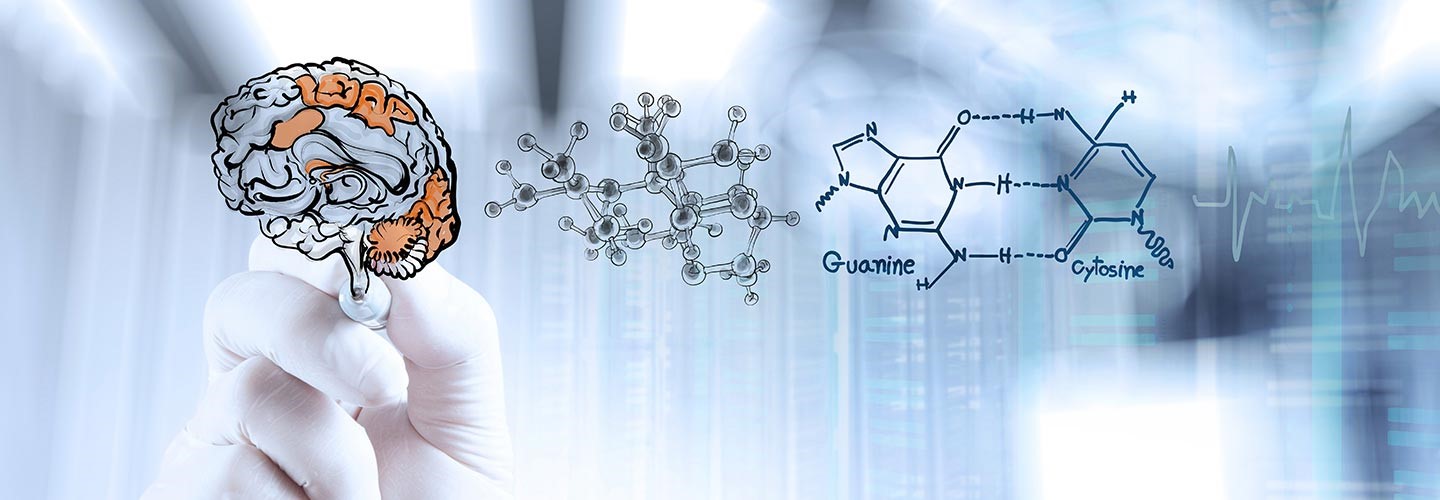Second Opinion – Session One
- Home
- Blog

It’s Not Rocket Science: How the Riddle of Your Emotional Pain can be solved by Genetic Testing
Dear Reader, when my children were in that stage of wonder where they posed questions about nearly every topic under the sun, their curiosity taking priority above all other pursuits, I’d often answer them jokingly, “I don’t know, I’m no rocket scientist!” To them, they grew up thinking a rocket scientist was the hardest job fit for the biggest brains in the world. It’s fun to trace their train of thought: if I can’t answer their every question because I’m not a rocket scientist, then the rocket scientist is the one person in the world who knows everything. But of course we adults know that even rocket scientists can get stumped sometimes—and indeed, for certain individuals working in high-level careers, getting stumped can feel especially isolating. They have answers to so many things in their life, and yet are left feeling helpless on the issues they just don’t know how to solve. Years ago, the thought of me being able to help a rocket scientist would make my growing girls proud. Today, I want to tell you the story of how that became a reality. In fact, I did meet a real rocket scientist who was seriously struggling with her lack of answers. She needed a second opinion, and I was able to help her climb out of the deep hole she was in and toward a happier healthier life.
My patient Jill* was a rocket scientist—the real deal! But when she came to see me for a second opinion, she was in really bad shape. Severely depressed and suffering from cognitive impairment and suicidal preoccupation, she feared that her entire life was going down the drain. A mother of three young children, she held a responsible job as a rocket scientist at a local aerospace company, where she held our nation’s highest Top Secret/Sensitive Compartmented Information security clearance, while working on national-defense related projects. She was doing important and valuable work in a career she considered to be her passion. How then could it be that she was barely functioning at work—and functioning even less effectively at home? This, reader, was the question she couldn’t answer. And she wasn’t alone—she had already seen two other psychiatrists who tried to help her find answers, but she was not doing any better. In fact, she was getting worse. The Sertraline (Zoloft), followed by the Paroxetine (Paxil) hadn’t helped her at all.
To make matters worse, Jill had sustained a concussion the year before, which had worsened a preexisting depression. “Doc,” she tearfully said to me in our first session together, “I’m about to lose it all—my job, my husband, my family.” Given that I was the third psychiatrist she had seen, I can understand the scared and pained expression on her face as she continued, “The agony is unbearable, but I’ve already spoken to professionals. Please tell me—do you think you can help… or is this just something I’m going to have to learn to live with?”
I believe it to be a critical part of my duties as a medical practitioner to understand the daily plight of my patients, in addition to their emotional and physical needs. I know that with so many hoops to jump through with insurance, not to mention the difficulty of finding a doctor you can trust, our medical system does not make it easy to simply see someone new to ask “for a second opinion.” When patients see a doctor, they’re often in an extremely vulnerable position: they’re in immediate pain, whether physical or emotional, and they need help, yet so often don’t know where to turn. The life they’ve worked so hard to build appears to be crashing and burning. And they fear they will lose everything. To ask someone in deep pain to undertake what can amount to hours and even days of research – to consult yet another doctor to ask about their symptoms—and wonder why the first opinion didn’t seem to work—is to ask quite a lot from them indeed.
That’s why my heart went out to Jill as she looked me in the eye with fear—and yet with the faintest glimmer of hope. Jill had gone through a lot, not just with her emotional suffering, but with two prior failed treatment attempts. I wanted to be direct with Jill about what I could offer her, and why I thought our work together would lead her toward becoming whole and finally healing.
My strategy was simple. Rather than subject her to another trial-and-error medication regimen, waiting months and even years to see what actually works, I’d administer a genetic test – through a simple cheek swab – and let her personal genetic variants guide us toward a more precise solution. As we know from our prior genetic testing series, these variants can tell us a lot, from whether certain medications will be effective to which meds one might be especially sensitive to—and so much more. Precision medicine had improved the lives of many of my patients, and I knew it could benefit Jill as well.
“I am confident that we can help you, but I am not going to prescribe another medicine for you at this time. First we will perform genetic testing to learn about your personal DNA, to make my treatment recommendations more precise. Please feel hopeful—just give me some time to figure this out.” With that, we swabbed her cheek and received the results of her Genecept Test one week later. Her genotype turned out to be a real eye-opener.
Variants in her SLC6A4, MTHFR, and CACNA1C genes led me to prescribe an entirely new regimen for Jill, which brought about a dramatic, and much welcomed, turnaround in her life. Her SLC6A4 variant predicted higher rates of adverse events and a lack of effectiveness with SSRI medications. We tapered her Paroxetine and put her on escalating doses of Trintellix, a non-SSRI “multimodal” antidepressant that also addressed her cognitive impairment. At the same time, we added Methylfolate and Magnesium to address her MTHFR and CACNA1C gene variants, respectively. Her MTHFR variant predicted that her brain cells did not manufacture enough L-methylfolate, a critical cofactor in producing enough serotonin, dopamine and norepinephrine (neurotransmitters that in turn are critical to establishing and maintaining a normal mood and anxiety level). Therefore, we simply supplemented what the brain was not producing enough of. Her CACNA1C variant predicted that her brain cells (and therefore the circuits and systems they operate in) would be “hyperexcitable,” leaving her more emotionally vulnerable, with less resilience to cope with life. As magnesium is a calcium channel blocker, and helps to reduce the hyperexcitable state, I recommended that Jill take this supplement as well.
One month later, Jill came into my office and exclaimed, “Doctor Bruce, I feel really good for the first time in years!” She reported with much relief that she was “about 70% recovered,” and we embarked on a course of psychotherapy to deal with the learned helplessness and defeat stress she was experiencing with her supervisor at work. For the first time in years, Jill felt optimistic. She also made my day!
Reader, I have witnessed hundreds of success stories whereby patients coming to me for a second—or third, or even fourth—opinion have found relief thanks to actionable epigenetic interventions guided by genetic tests. I hope this new series, Second Opinion, keeps you hopeful, just as it did Jill, that you or those you care about don’t have to live with unyielding emotional pain any longer.
Related Information
- Learn about Genetic Testing
- Learn about Potomac Psychiatry
- Meet Our Doctors
- Contact Potomac Psychiatry


